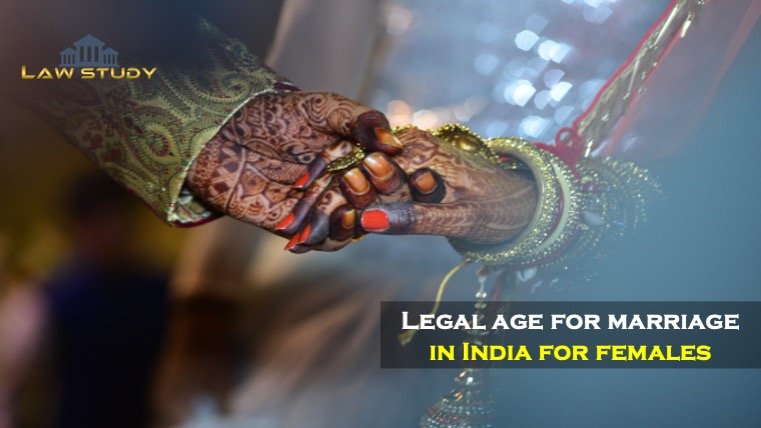Introduction of the Legal age for marriage in India: – The current Legal age for marriage in India for females, which is 18, violates not only their right to equality but also the fundamental need to prioritize improving their health.
In order to make women self-sufficient as well as self-citizens of the nation and reduce the incidence of domestic abuse against them, the implementation of the new age of majority will also prioritize raising women’s graduation standards.
While there are justifications for this increase in average age, opposition on the other side of the spectrum also has compelling arguments. According to opponents, raising the Legal age for marriage in India for females will violate the rights granted to specific special communities where child marriage is a common practice. They contend that the state shouldn’t interfere with matters of customary laws and customs.
History of Women’s Marital Age in India
Prior to Independence, women used to get married at 10 years old. After Independence, this age was raised to 15 years. However, the Child Marriage Restraint Act was amended in 1978, raising the Legal age for marriage in India for females to 18 years. The Prevention of Child Marriage Act, 2006, which replaced the previous Child Marriage Restraint Act, was created in 2006 after the govt made the decision to outlaw child marriage to a greater extent.
Prohibition of Child Marriage (Amendment) Bill, 2021
This Bill was presented in Lok Sabha in Dec of 2021 with the purpose of increasing the minimum age for marriage for women in India from 18 to 21 years. Numerous specialists believe that the present provision is a step towards enforcing the right to equality because of its discriminatory nature.
Benefits of Raising the Marriage Age for Women
This action emphasizes the principle of equality by putting males & females on an equal footing. The administration believes that raising the marriage age for women will help to address issues like infant and child mortality, the poor nutrition of children, the poor health of women due to early pregnancy, and the infant mortality rate. Additionally, it will increase the percentage of women who are educated.
In India, an individual graduates at the age of 21. As a result, it will aid in the production of more graduate women who can serve the nation with a variety of cognitive abilities.
Negative effects of increasing the marriage age for female
The results of the National Family Health Survey-5 unambiguously demonstrate that enacting laws alone is insufficient to end child marriage because it still occurs in many parts of India. Legislation’s creation does not ensure that it will be carried out successfully.
Numerous specialists believe that child marriage is frequently associated with people’s conservative & orthodox ideologies and ideologies. People regard girls as an unnecessary burden, so they marry them at a young age. Girls in such homes are frequently subjected to torture & trauma.
These girls frequently marry at a young age in order to escape violent households; thus, marriage serves as an effective protective mechanism for them. Raising the marriage age doesn’t really ensure education for women because many households with rigid thinking and ideologies will still recognize it as a burden and a waste of money.
All of these aspects, when considered together, raise the issue of upcoming legislation’s implementation. Numerous experts believe that this legislation would raise the number of cases of female foeticide rather than addressing the issue at hand.
Child Marriage Statistics in India
According to the National Family Health Survey-5 (2019–22), 14.7% of females aged 20 – 24 in urban areas & 27% in rural areas were married before the age of 18.
This survey showed that at the time of data collection, 7.9 % of females in rural areas & 3.8% of females between the age of 15 -19 in urban areas were either pregnant or already mothers.
However the proposed legislation has managed to reduce child marriages in India to a larger extent, this data explicitly proves the presence of child marriage in India regardless of the current regulations.
Conclusion
Raising the marriage age of women is a significant step, but it requires an appropriate implementation-specific mechanism. Along with the legislation, public awareness is very important to address the problems.
Several developed nations, including New Zealand & Singapore, have marriage ages for women that are similar to the proposal.
As a result, while this legislation has the potential to be beneficial, the best approach to its effectiveness depends on the well-thought-out effective measures that should be implemented to raise public awareness of its significance.
Frequently Asked Questions
Q. Why is India’s marriage age 21 and 18?
Ans. Indian govt recently proposed a bill to raise the age at which women can legally get married from 18 to 21 years old. The Indian government stated that the new legislation would empower females and reduce gender inequalities when asked about the motivation behind it.
Q. In India, can a boy who is 18 years old get married?
Ans. Currently, boys must be 21 years old to get married in India, whereas girls must be 18 years old.

























